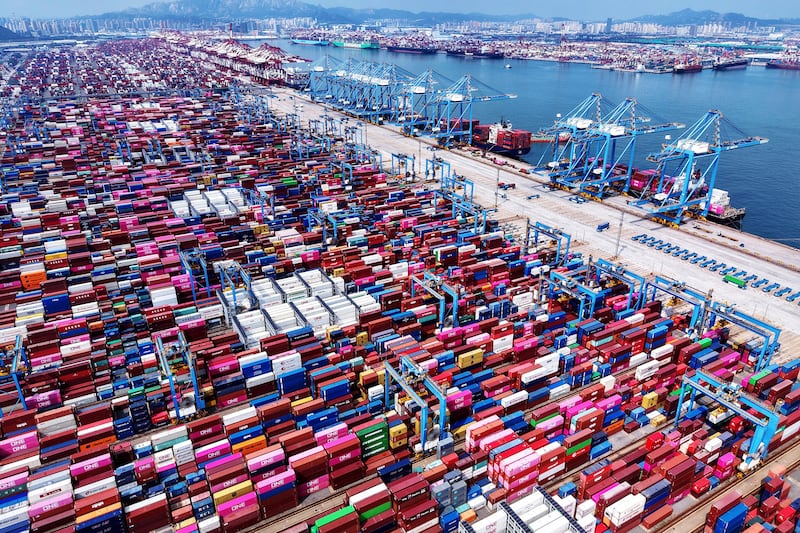- Trump issued a 90-day extension to the tariff truce between the U.S. and China.
- China is the United States' third largest trading partner.
- Without the extension triple-digit tariffs between the two countries would have resumed.
President Donald Trump has extended a tariff truce between the U.S. and China, holding off the triple-digit tariffs that were originally announced in the spring.
The tariffs were set to resume on Tuesday, but Trump signed an executive order with a 90 day extension on Monday, per Newsweek. This extension sets a new deadline date of Nov. 9 at 12:01 a.m.
According to Newsweek, when asked by reporters on Monday how he planned to extend the deadline Trump said “We’ll see what happens. They’ve been dealing quite nicely. The relationship is very good with President Xi and myself.”
The delay in the tariffs’ resumption was expected after the latest round of talks between U.S. and Chinese trade negotiators which took place in late July in Stockholm, Sweden, per CNBC.
Without the deadline extension, U.S. tariffs on China would have gone back up to where they stood in April when the tariff war between the world’s two biggest economies was at its peak.
At that time, Trump had set blanket 145% tariffs on Chinese imports and China retaliated with 125% tariffs on goods from the U.S., according to CNBC.
The two countries agreed to pause most of the tariffs in May, after negotiators met in Geneva. The U.S. lowered its tariffs to 30% and China dropped its tariffs down to 10%.
“Monday’s extension is the latest example of how Trump’s on-again, off-again tariffs have shifted with little prior notice, a dynamic that has made U.S. trade policy unpredictable for many businesses,” according to CNBC.
According to Reuters, the extension of the deadline into November gives crucial time for the autumn surge of imports for the end of year holiday season at lower tariff rates.
China is the United States’ third largest trading partner under Mexico and Canada, reported Newsweek. There are a variety of products that are regularly imported from China such as clothes, computer chips and household items.
This extension will give both countries more time for negotiations before implementing the higher tariffs.
“The whole reason for the 90-day pause in the first place was to lay the groundwork for broader negotiations and there’s been a lot of noise about everything from soybeans to export controls to excess capacity over the weekend,” said Kelly Ann Shaw, a former senior White House trade official and now with law firm Akin Gump Strauss Hauer & Feld, per Reuters.


